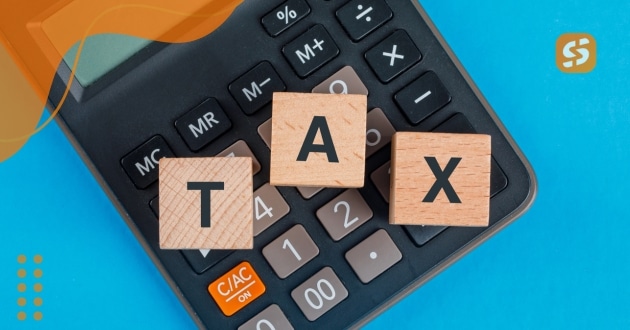Advertisements
Do you want to pay less taxes without breaking the law? Discover today the Singapore tax saving strategies that have helped you reduce the tax burden and maximize annual income.
We have selected the best Singapore tax saving strategies, from professional courses to deductions for care for elderly parents, as well as benefits for contributions to the CPF, donations and incentives for entrepreneurship, among others that will be covered today.
Because of this, you will understand in a few minutes the main Singapore tax saving strategies that you can apply quickly, thinking about paying less taxes.
Singapore tax saving strategies: 07 Best
1. Take a professional course (Singapore tax saving strategies)

Taking a professional course is a great way to reduce the tax burden, although many Singaporeans are still unaware of this possibility.
Advertisements
To be tax-exempt, you must take courses in the year, they must still be relevant training for your current job and that you can prove payment. In this scenario, the deduction can reach up to S$5,500.
I took a course thinking about a career transition, will it be valid for tax deduction? Yes, in this specific case an exception is made. For example, if you are migrating from an administrative role to a finance area and have attended a course that contributes to this transition, you can use it for tax exemption purposes.
2. Make a charitable donation
Making a charitable donation is a way to combine social responsibility and tax benefits.
In Singapore, when donating to an institution registered as IPC (Institute of Public Character), you can claim a tax deduction of 250% on the amount donated.
Advertisements
This policy has been extended until December 31, 2026, allowing taxpayers to not only contribute to relevant causes but also maximize the reduction of their tax burdens.
For example, if you made a donation of S$ 1,000.00, you can deduct taxes of up to S$ 2,500.00.
3. Recharge your CPF (Singapore tax saving strategies)
Recharging your CPF Special Account is another way to boost your finances and reduce your tax burden.
It works like this, if you are under 55 years old, you can make cash contributions to your account, and the amount will automatically be considered for tax deduction.
Please note, currently, the recharge limit is S$ 8,000 for your own account and another S$ 8,000 for family members’ accounts. Allowing for total tax relief of up to S$16,000 per year.
In addition, by recharging your parents’ CPF accounts, you further expand your tax benefits.
It is also possible to take advantage of deductions through contributions to the Medisave account and to the Supplementary Retirement Plan (SRS), consolidating an efficient financial and fiscal planning strategy.
4. NSman’s Relief
The National Service also provides valuable tax benefits. In recognition of your commitment as an NSMan of the Singapore Armed Forces, you can take advantage of NSman’s Relief.
Thus, the amount of the benefit varies: whether or not you held a Key Appointment Holder (KAH) position in 2024. If it has been occupied, the tax discount can reach up to S$ 5,000. If he did not hold a position in KAH, the relief is up to S$ 3,000.
In addition, while eligible for NSman Relief, your spouse and parents will also automatically benefit from an additional S$750 discount in the assessment year.
5. Life Insurance Relief (Singapore tax saving strategies)
If you are unemployed or self-employed, you may have made very low contributions to the CPF in the last year.
There’s an opportunity for you. If your total mandatory CPF contributions as an employee, voluntary contributions, or deposits with Medisave as a self-employed person add up to less than S$5,000, you may qualify for Life Insurance Relief.
This tax benefit is intended to complement the financial protection of those who, for different reasons, contributed less to the system.
Thus, your CPF contributions, including voluntary and Medisave payments, need to remain below S$5,000 for the year to be eligible for the discount.
6. Business Expense Deductibles
Every business owner knows that running a business, whether it’s a small shop or a tech startup, involves monthly operating costs.
The good news is that many of these expenses can be deducted from income tax, helping to alleviate the financial burden of the activity. Examples of business expenses that can be deducted include:
- Accounting fees;
- Investments in advertising;
- Contributions to the CPF;
- Taxes on skills development.
With good organization and proper recording of these expenses, it is possible to maximize the tax benefits available.
7. Caring for your elderly parents

Caring for elderly parents is a gesture of love and can also bring important tax benefits.
A recent study revealed that 9 out of 10 young people between the ages of 25 and 34 want to help their parents (financially).
To encourage this practice, the government implemented the “Parental Aid” program, offering tax deductions to those who provide this support.
- The program provides for specific deductions, depending on the family situation:
- When the child resides with the elderly parent, the tax deduction amount is $9,000 per year;
- If they live in separate households, the deduction is $5,500 per year.
In addition, for parents who have a disability, these values are increased. Reaching US$ 14,000 per year for those who live together and US$ 10,000 for those who live separately.
Additionally, there is a global limit of $50,000 involving QCR/HCR and WMCR deductions.
There are also other alternatives seeking to make people’s lives easier. For example, in the case of working mothers, the total deductions via WMCR cannot exceed 100% of the income earned in the last tax year.
Now, if grandparents or in-laws care for children up to 12 years old, it is still possible to claim a Grandparent and Caregiver Aid (GCR) of US$ 3,000.
It is important to know that the tax benefit for parents is not a simple deduction, but a direct refund on the income tax due.
The Parenthood Tax Rebate (PTR) can be claimed only once for each child, in the tax year following the birth.
Conclusion (Singapore tax saving strategies)
Adopting the smart tax saving strategies in Singapore not only means reducing the amount you pay to the government, but also making the most of the incentives available to you to plan your financial future. Whether through professional improvement courses, donations with tax incentives, recharges in the CPF or support for elderly parents.
Singaporean legislation offers several ways to alleviate the tax burden, as long as the taxpayer is aware of the rules and knows how to apply them correctly.
Understanding these strategies and applying them responsibly is the first step to building a more peaceful financial life, thinking about the long term. After all, those who plan intelligently, save more, invest better and ensure peace of mind in the future.
Here’s the tip! Singapore tax saving strategies will help you, but without good financial management you will remain in debt or in a short time you will be in the red. Thinking about avoiding this, we recommend that you use one of the best personal finance apps Singapore.



















